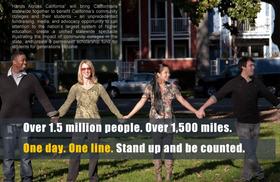The lure of an affordable college education brings countless thousands of students just like you to community college campuses each semester. With a greater breadth and depth of course offerings and degree programs available than ever before, community colleges represent excellent value for many students who seek to build their skills for future educational and career endeavors. In addition to many associate's degrees and professional certificate programs, community colleges throughout the country offer select bachelor's degree programs, furthering the appeal of the community college route. However, despite the many advantages of these programs, they are not for everyone.
Degree Programs Around the Nation
The movement to allow community colleges to offer four-year degrees is borne out of the needs of the modern workforce. Education and economic officials recognize that with major gaps in the workforce in healthcare, energy exploration, and information technology, new workers need to be trained. Community colleges represent an excellent opportunity to train these workers because they are typically at the forefront of educational innovation and are much more able to respond to the changing needs of the workforce than a four-year institution.
This new wave of educational opportunity is present in all corners of the country. More than a dozen community colleges in Washington State now offer baccalaureate degrees. More than two dozen two-year institutions in Florida offer four-year degree options. Texas, Hawaii, and West Virginia community colleges have gotten on board with providing bachebachelor'see programs as well. Community colleges in 21 states now offer bachebachelor'see programs. With California set to provide such programs very shortly, that number will soon rise.
This marks a significant shift for community colleges, which, as recently as the 1980s, were seen as a bastion for students who couldcouldn't it at a university or those who needed to pursue job-specific or technical skills to procure employment. Now, students are beginning to view community colleges as destination institutions, just like their university big brothers. Before you decide the pathway to earn your bachelor's degree, consider the advantages and disadvantages of earning that degree from a community college.
The Advantages
As stated above, the primary benefit of obtaining a bachebachelor'see from a community college is price. According to data from the College Board, the annual cost of in-state tuition and fees at a public two-year college is $3,264. Compared to the average yearly in-state tuition and fees at a public four-year university, which in 2013-2014 were $8,893, one can see the value in attending a community college. That value is even more apparent when room and board are factored in. With the addition of those costs, the yearly charge for a community college student is $10,730, while the average annual cost to a four-year university student is $18,391. At a savings of nearly $8,000 per year, a community college student in a bachelor's program will save well over $30,000 throughout a four-year program. Students who live at home or elsewhere off-campus stand to save even more money.
Another bonus for students who take the community college route is more flexible learning options. Both two- and four-year programs offered by community colleges typically cater to non-traditional students who have returned to college as older adults and have obligations during the day, such as a career or tending to family needs. As a result, community college programs include far more night and weekend classes and online and distance learning options than their university counterparts. Even if you are a traditional-aged student, this flexibility is nice when organizing your class schedule.
Adding to the benefit of flexibility, some community colleges offer bachelor's options. At Mesa Community College in Arizona, part of the much larger Maricopa County Community College District, dozens of degree options are available, from the arts to languages to kinesiology. In California, where community college students have had access to programs offered by the University of California and California State University systems for years, there will soon be several options for obtaining a bachelor's degree on the campus of local community colleges. California Governor Jerry Brown recently signed legislation allowing fifteen state colleges to offer four-year degrees, increasing access for thousands of students to a bachelor's education that otherwise might have been unattainable.
This video describes the California Community College Bachelor Program, which offers four-year degrees nationwide at 15 California community colleges.
The affordability of these programs and the ease of access are enough to drive up enrollment numbers amongst first-generation college students, minorities, and the socioeconomically disadvantaged. For the first time, many of these groups, all of whom remain underrepresented in higher education, have a viable option for obtaining an advanced college degree. However, programs like these that offer bachelor's degrees at community colleges have helped drive up black and Latino college enrollment by 8.5 percent and 22 percent, respectively, between 2009 and 2011.
Another primary draw of attending a community college is the smaller class sizes. According to the Integrated Post Secondary Education Data System, the average community college class size is 25-35 students. A university's regular freshman or sophomore-level courses can have 150-300 students. Smaller class sizes offer many benefits to students, not the least of which is more personal interactions with classmates and professors. In a smaller class, you can expect more significant opportunities to ask questions, more chances to participate in class discussions, and a greater likelihood that a professor will know you by name and know your academic strengths and weaknesses. These are all highly attractive benefits for students, particularly for first-generation students or those who have struggled with academics in the past.
Pursuing a bachelor's degree at a community college also gives you the advantage of taking courses from professors primarily focused on teaching. At the university level, professors are often required to conduct research as part of their pursuit of tenure, making teaching a secondary activity. Oftentimes, lower-level courses aren't taught by professors but by their graduate assistants instead. Since community college professors aren’t required to conduct research, you will have far more contact time with them than you would at a university, offering the benefit of more individualized instruction and more detailed feedback on the work you submit.
As mentioned above, community colleges have demonstrated a much greater ability to respond to the needs of a changing workforce than universities. As a result, the bachelor's programs offered at community colleges are primarily in career areas currently in high demand. Students who wish to have an excellent chance of having a job immediately upon graduation are flocking to these programs. Students who have already graduated with a bachelor's, even a master's degree are returning to community colleges to receive new training to get jobs. The opportunities for employment for community college graduates represent an advantage to these programs second only to their affordability.
Because these programs are more attuned to the needs of the economy, one-third of students who graduate from community college with a two-year degree make more money upon graduation than do graduates of bachelor's programs at universities. One can assume that with four-year programs that are equally in tune with the workforce's needs, community college students with bachelor's degrees stand to make more money than their university counterparts. And while the income gap between community college and university graduates narrows over time, the fact remains that community college students spend far less money getting their degree than those who attend a four-year institution.
The Disadvantages
Yet, while advantages are abundant to obtaining a four-year degree from a community college, there are some disadvantages. While some community colleges offer a great variety in their degree programs, at least at this point, the number and type of bachelor's degree options available at most community colleges in the country remains pretty thin. At Bellevue College in Washington, three of the six bachelor's degrees are in healthcare. Four of the seven bachelor options at Santa Fe College in Florida are also in the healthcare field. At Jackson Community College in Michigan, just one bachelor's degree program is offered in energy systems. Finding a bachelor's program at a community college may prove difficult if a student isn’t interested in healthcare, information technology, or energy industry-related fields.
The limited scope of some community college four-year programs is due to vehement opposition from state universities that community colleges can even offer bachelor's degrees. In Colorado, the power to offer four-year degrees at community colleges was given only after they agreed to provide degrees in career and technical fields to satisfy the University of Colorado and Colorado State University so that there wouldwouldn'tirect competition for students. A similar situation occurred in Michigan, where the statestate'sic universities led a years-long opposition to bachelor's programs at community colleges. Although community colleges now have the right to offer such programs, they are limited to four career-technical fields in that state.
This in-fighting between universities and community colleges reflects the stigma of attending community college. Some in the university ranks look down their noses at students who attend a community college and professors who choose to teach there, even though community colleges have long since shed their identity as a place for the academically challenged. These stigmas also remain among some people in business and industry who persist in doubting the quality of education that community college graduates receive. With bachelor programs at community colleges a comparatively new phenomenon, these long-held stigmas are likely to hold more tightly to students who pursue their four-year degrees at two-year institutions. Unfair as it may be, graduates of these programs may find it more challenging to impress job recruiters, particularly in career areas that are typically not a focus of community college programs
Although some programs, particularly those in the career and technical fields, enjoy state-of-the-art facilities at many community colleges, other degree areas do not. This lack of university-level resources should be a consideration for students pursuing their bachelor's degree at a community college, mainly if the degree area requires research. At St. Petersburg College in Florida, students pursuing their bachelor's degree in biology don't have the lab space on campus to conduct their research. Consequently, they must rely on field trips to area hospitals and government agencies to get their lab work in—a lack of resources like this doesn't do much to dispel the stigma associated with studying at a community college.
Conclusion
Going to college requires many important decisions to be made and many important questions to be asked. What should be your major? Where should you attend school? What type of school should you attend? The answers to these questions – and many more – should be carefully considered when making that all-important decision. Yet, now that community colleges offer bachelor's degrees, these decisions may be more challenging to make than ever before.
The affordability and flexibility that community colleges offer are undeniable advantages. However, the relatively unproven track record of community college bachelor programs and their fairly limited scope of areas of study are clear disadvantages. Whatever your choice, treat your college decision as any other major financial purchase. Do your homework. Ask questions. Investigate all the options. Then weigh the pros and cons in order to make the most informed decision you possibly can.
Questions? Contact us on Facebook. @communitycollegereview














